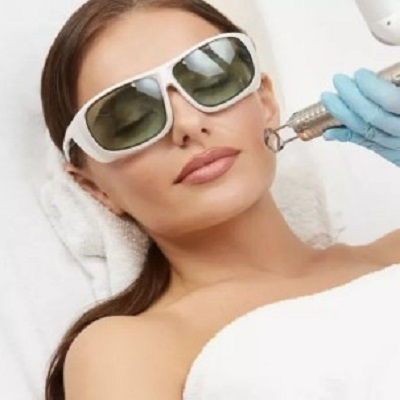Can Fractional CO2 Help with Enlarged Pores?
- aliza khan
- May 31, 2025
- 3 min read
Enlarged pores are a common skin concern, often resulting from factors like genetics, aging, excessive oil production, and sun damage. While various treatments exist, fractional CO₂ laser therapy has emerged as a promising solution. For those seeking the Best Fractional CO₂ Treatment in Muscat, understanding how this procedure addresses enlarged pores is essential.
Understanding Enlarged Pores:
What Causes Enlarged Pores?
Pores are tiny openings in the skin that release oils and sweat. Several factors can cause them to appear enlarged:
Excessive Sebum Production: Overactive oil glands can stretch pores.
Loss of Skin Elasticity: Aging and sun damage reduce collagen, making pores more visible.
Clogged Pores: Accumulation of dead skin cells and oils can dilate pores.
Genetics: Some individuals naturally have larger
Why Are Enlarged Pores a Concern?
While enlarged pores are primarily a cosmetic issue, they can lead to:
Uneven Skin Texture: Affecting the smoothness of the skin.
Increased Acne Risk: Larger pores can trap more dirt and oil.
Reduced Confidence: Visible pores can impact self-esteem.

Fractional CO₂ Laser: A Solution for Enlarged Pores:
How Does It Work?
Fractional CO₂ laser therapy uses a carbon dioxide laser to create micro-injuries in the skin. This stimulates the body's natural healing process, promoting collagen and elastin production. As the skin heals, it becomes firmer and smoother, reducing the appearance of enlarged pores.
Benefits for Enlarged Pores:
Collagen Stimulation: Enhances skin elasticity, tightening pores.
Skin Resurfacing: Removes damaged skin layers, promoting new skin growth.
Sebum Regulation: May reduce oil production, preventing pore enlargement.
Clinical Evidence Supporting Fractional CO₂ for Pores:
A study published in the Zagazig University Medical Journal evaluated the efficacy of CO₂ fractional laser in treating enlarged facial pores. Twenty patients underwent three sessions of CO₂ fractional laser treatment, spaced four weeks apart. The results showed a mean improvement score of 2.8 ± 0.92, corresponding to moderate to marked improvement on a quartile grading scale. The study concluded that CO₂ fractional laser is effective and safe for treating enlarged pores, with a high degree of patient satisfaction.
Another study involving 32 patients with dilated facial pores reported a significant decrease in the number of enlarged pores after three sessions of low-energy fractional CO₂ laser treatment. The mean number of enlarged pores decreased by 28.8% after the second session and by 54.5% at post-treatment evaluation. Histological analyses demonstrated clear increases in collagen fibers, supporting the treatment's efficacy.

What to Expect During Treatment:
Procedure Overview:
Consultation: Assessment of skin type and concerns.
Preparation: Application of topical anesthetic to minimize discomfort.
Treatment: Laser is applied to targeted areas, creating controlled micro-injuries.
Duration: Sessions typically last 30 to 60 minutes.
Recovery and Aftercare:
Immediate Effects: Redness and swelling, resembling a sunburn.
Healing Time: Skin may peel and heal over 5 to 7 days.
Post-Treatment Care:
Keep the skin moisturized.
Avoid sun exposure; use broad-spectrum sunscreen.
Refrain from using harsh skincare products until fully healed.
Choosing the Right Provider:
For optimal results, it's crucial to select a qualified and experienced practitioner. Those seeking the best fractional CO₂ treatment in Muscat should research providers' credentials, read patient reviews, and schedule consultations to discuss treatment plans.
Conclusion:
Fractional CO₂ laser therapy offers a promising solution for individuals struggling with enlarged pores. By stimulating collagen production and resurfacing the skin, this treatment can lead to a smoother, more refined complexion. Clinical studies support its efficacy and safety, making it a viable option for those seeking long-term improvement in skin texture.



Comments